Remodeling Shower Walls: Choosing the Best Shower Wall Materials and Shower Wall Material for Your Shower Walls
When remodeling a bathroom, people prioritize aesthetics and functionality, but the shower wall finishes are the most important features. The material you use in the shower wall will determine how the bathroom will look and influence its durability and ease of maintenance. Since a bathroom has a high moisture content, its wall finishes should be water-resistant, easy to clean, and resilient to mold and mildew.
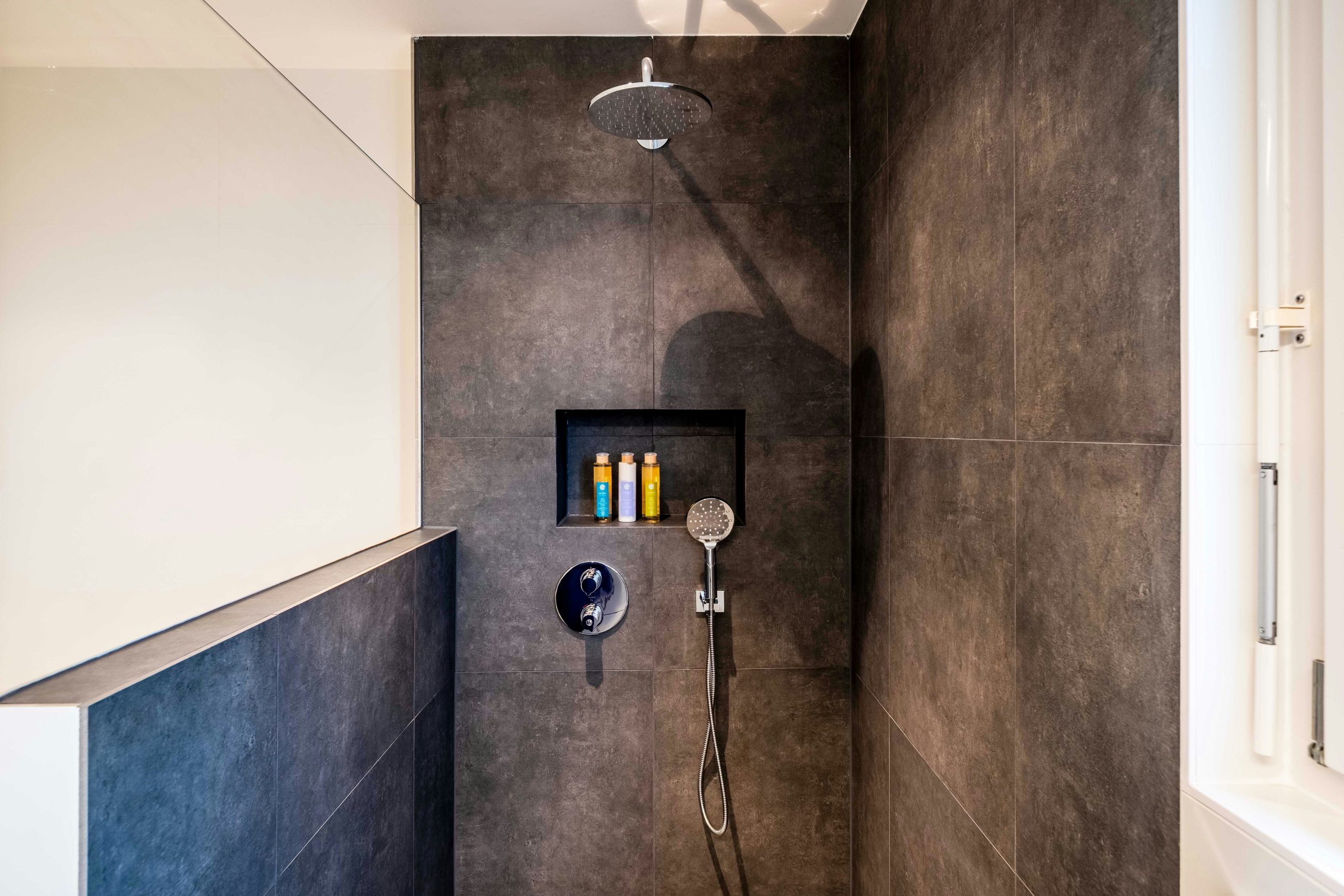
In the 2023 Homeowner Survey, nearly 78% of those surveyed reported the bathroom is the first room they would like to renovate. Hopefully, this will explain why most homebuyers today choose to use only the best materials to ensure longevity and resilience against constant exposure to water and steam. As per the National Kitchen and Bath Association, a bathroom remodel may have a return on investment between 60 and 67%. This makes a remodel a sound home improvement project, increasing aesthetic appeal and property value on the market.
This article will discuss some shower finishes, from the classic elegance of ceramic tiles to innovative materials like laminated wall panels.
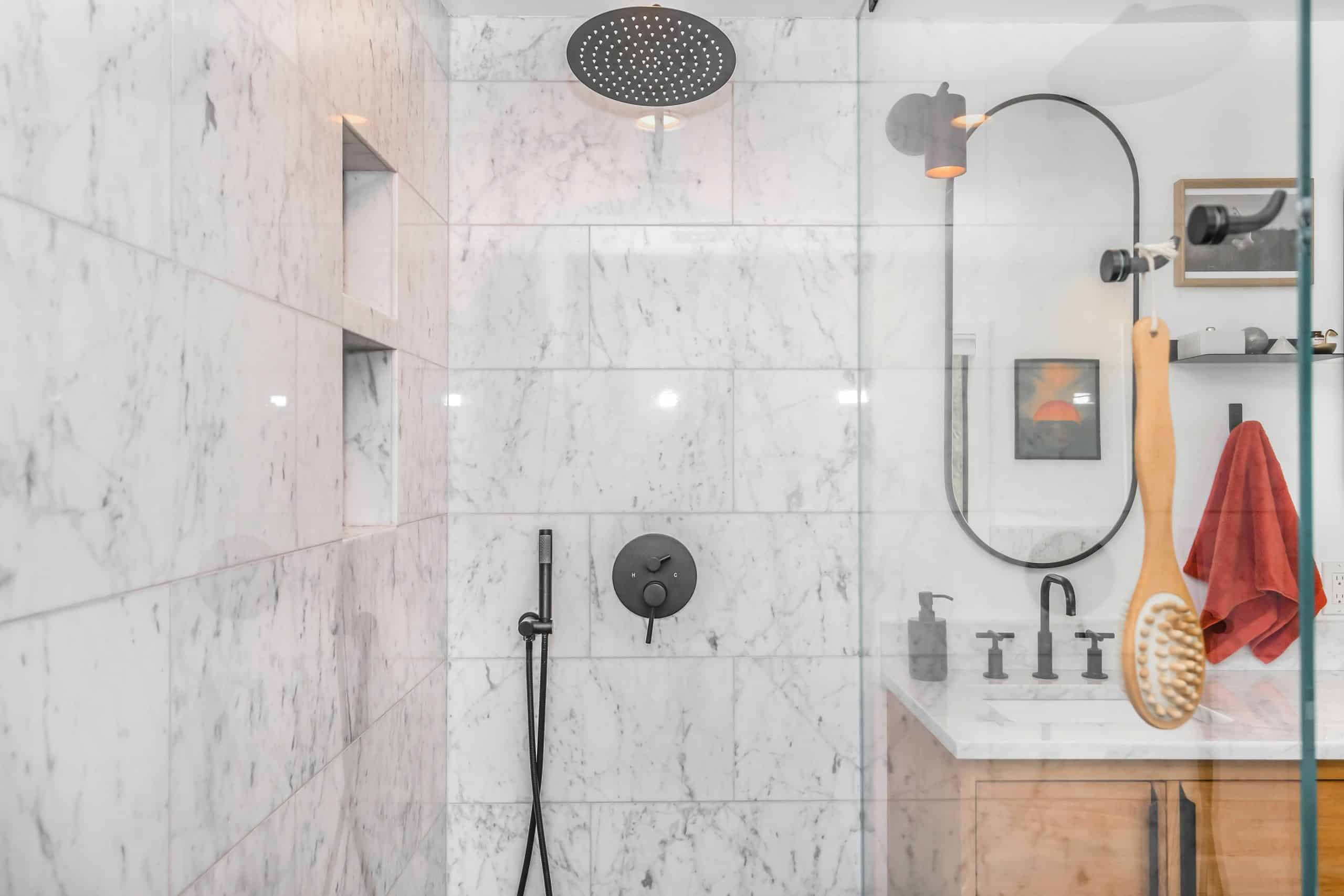
Overview of Shower Wall Finishes
What are Shower Wall Finishes?
Shower wall finishes cover the walls in a shower space and protect them from the continuous action of moisture, heat, and chemicals that are part of cleaning products. These finishes not only protect the structural integrity of the walls, but they are also important for the general aesthetic and atmosphere of the bathroom. Practical wall finishes must be waterproof, or at least highly water-resistant, easy to clean, and durable enough to undergo daily use without deteriorating appearance or function.
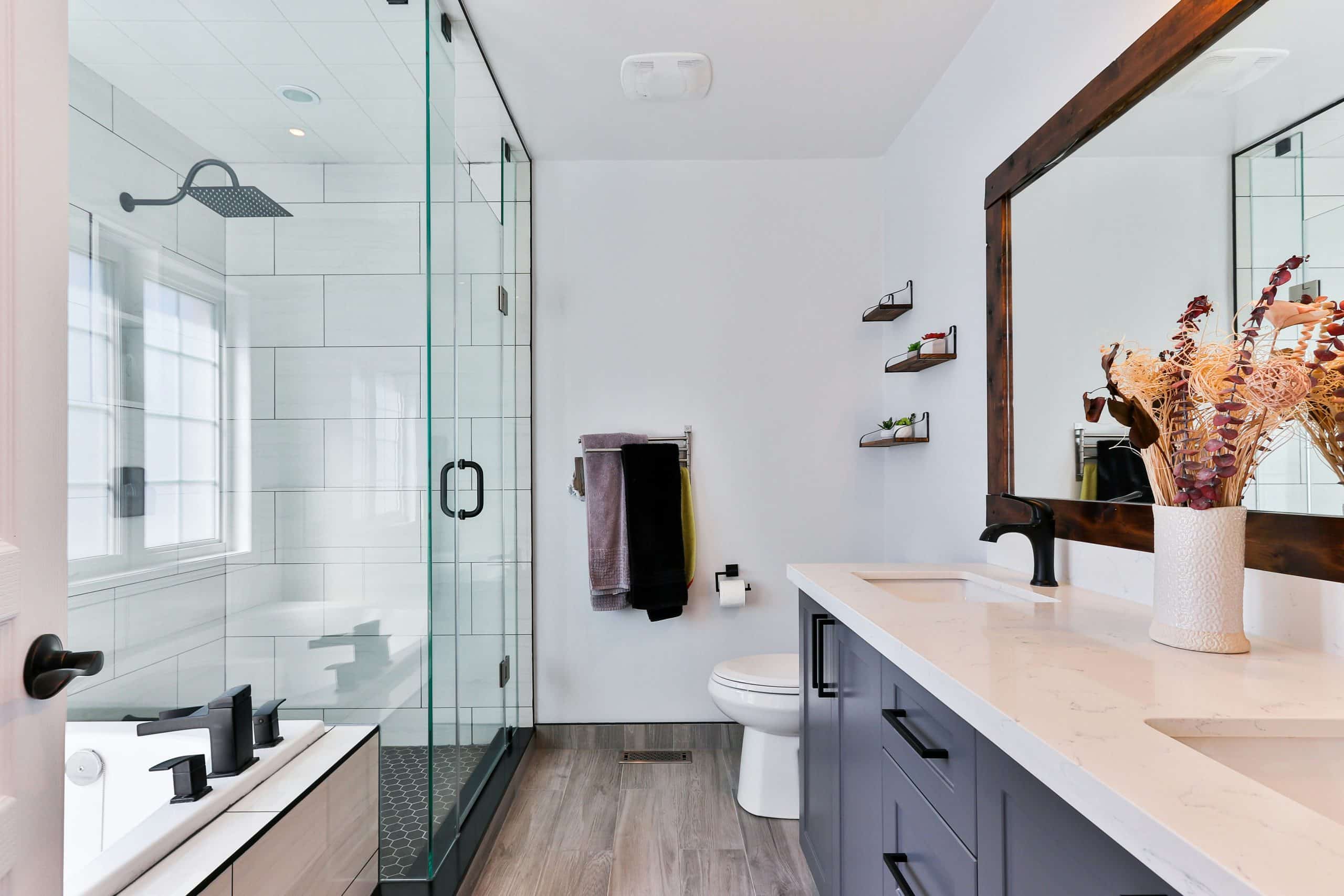
Types of Finishes
Shower wall finishes can come in many material options for taste, budget, and design requirements. Below is a summary of some of the most popular types:
Ceramic and Porcelain Tiles: These are favorites for their versatility and resilience. Ceramic tiles are made of clay and have a glazed surface, meaning they are the least porous and most stain-resistant. Porcelain tiles, on the other hand, are made from denser clay and fired at higher temperatures; thus, they are more water-resistant than ceramic tiles. Both are available in different colors, patterns, and sizes, allowing for a customized design and creative arrangement.
Naturale Stone—Marble, granite, and travertine finishes in a bathroom always give an air of luxury. Each piece of stone is different, offering a totally unique look with natural veining and color variants. These materials require a little more care in the way of sealing than the rest to ward off water damage and staining, but their unequaled elegance and style make that trouble well worth the work.
Acrylic and Fiberglass: For those on a budget, these man-made materials can be easily installed. Usually coming in large, seamless panels or even pre-fabricated shower kits, this has been a breeze and pretty low on the scale for potential leak problems. While they won’t quite add that upscale appeal that tile or stone will, they come in a myriad of finishes and can mimic many other materials.
Glass Tiles: With a range in resemblance from transparent to opaque, glass tiles definitely add depth and light to a modern bathroom. Either they give an extremely clean, modern look, or they can inject a bit of color into the space. Nonetheless, glass tiles require careful installation and consistent upkeep to keep them at their best.
Each material has distinct characteristics and unique maintenance requirements, hence the need for a selection that will take into consideration these specific aesthetic wants and practical realities regarding lifestyle and bathroom use. This knowledge allows the homeowner to be better placed in his decisions on what balances beauty with functionality.
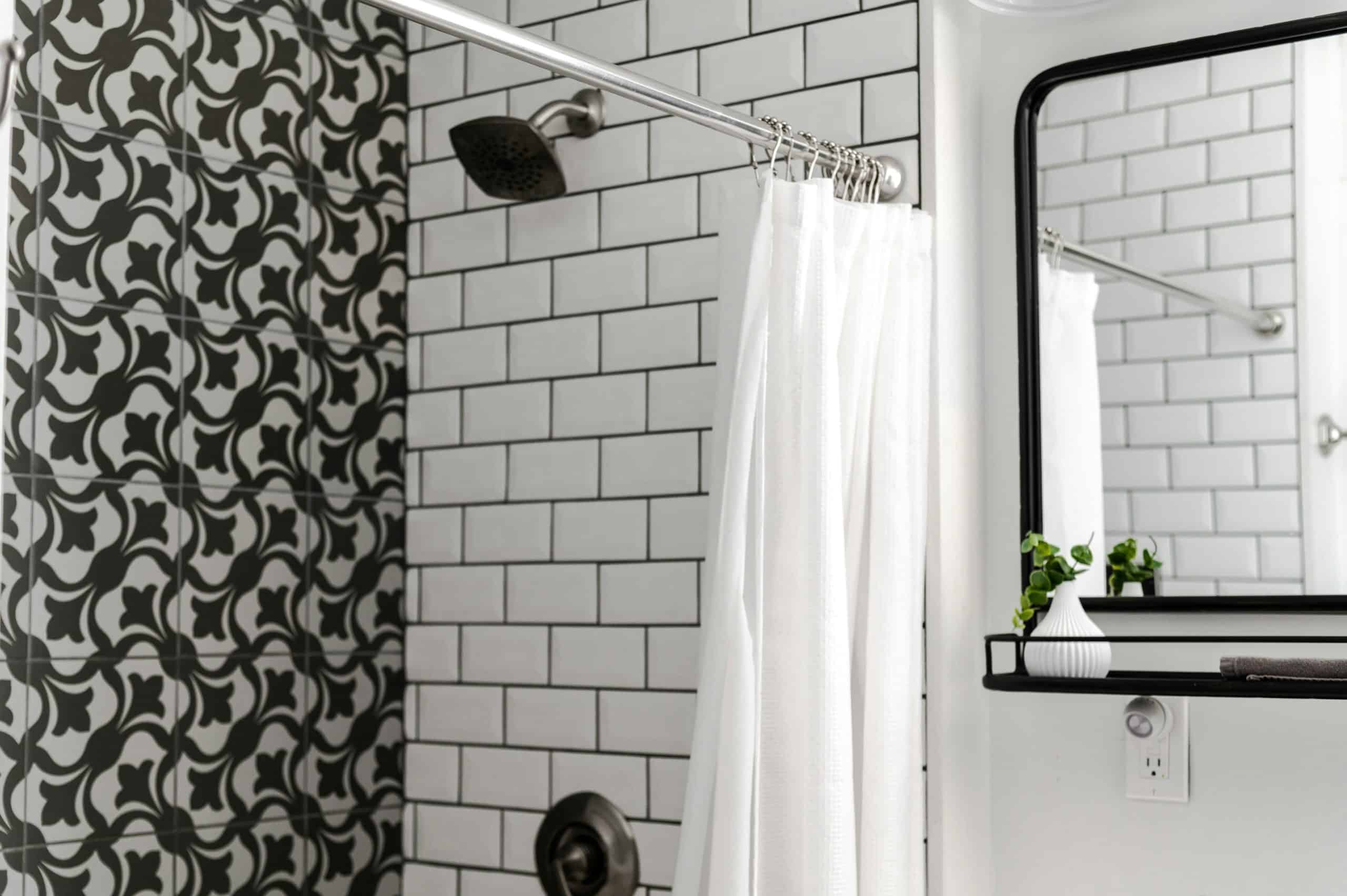
Detailed Guide to Popular Shower Wall Finishes
Ceramic and Porcelain Tiles
Ceramic and porcelain tiles are the most popular choices for shower walls due to their durability and water resistance. They come in various colors, shapes, and sizes, allowing for versatile design schemes.
Pros: Easy to clean, wide range of options, cost-effective.
Cons: Grout lines can become moldy if not properly maintained.
Best Uses: Depending on the tile style chosen, they are ideal for achieving any look, from traditional to modern.
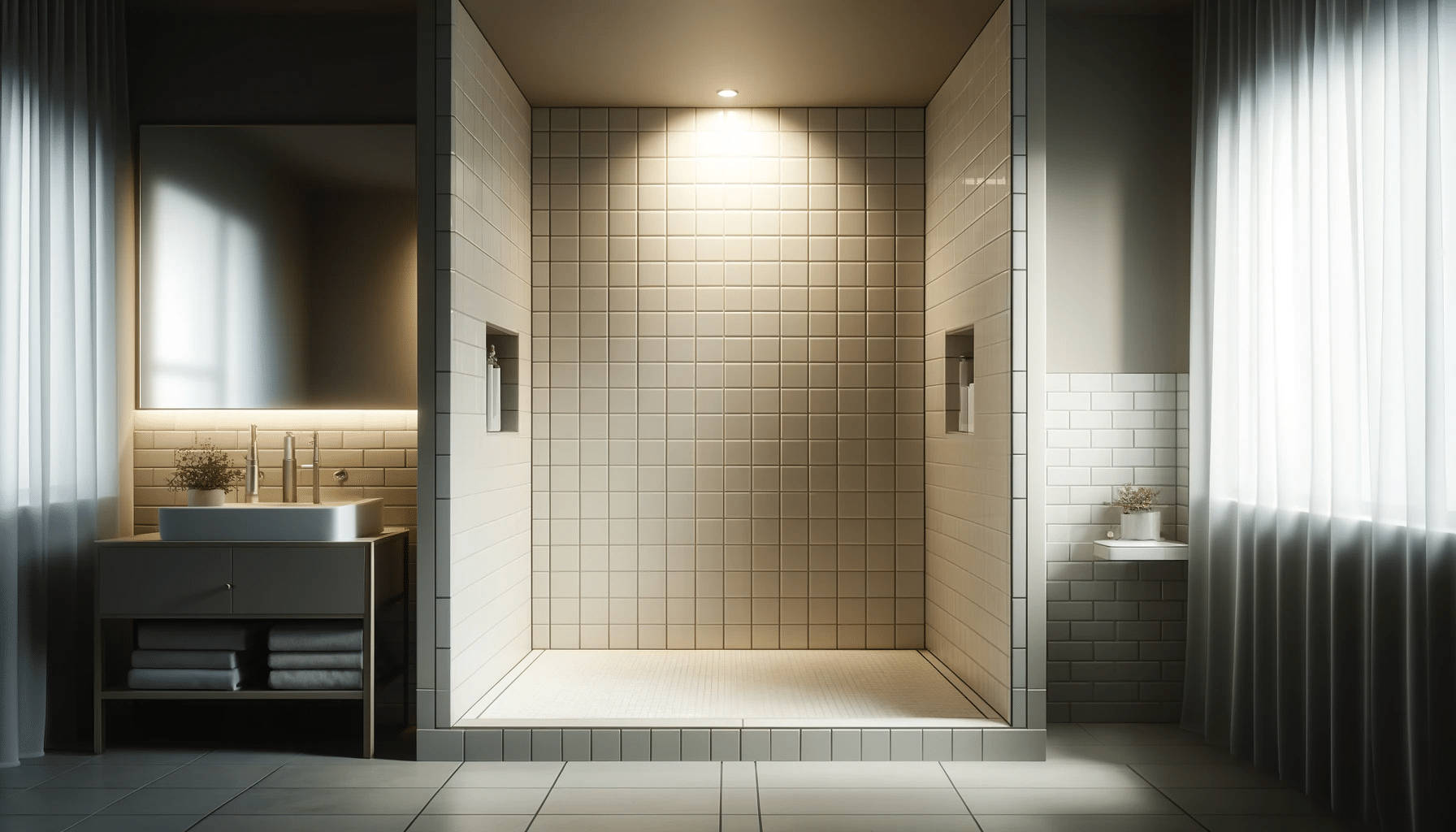
Natural Stone
Natural stone, such as marble, granite, and slate, provides a luxurious and unique appearance. Each piece of stone is distinct, giving your shower an exclusive look.
Pros: High-end appeal and durability.
Cons: Requires more maintenance, such as regular sealing, to prevent water damage and staining.
Best Uses: Perfect for creating a statement shower that acts as the centerpiece of a luxury room.
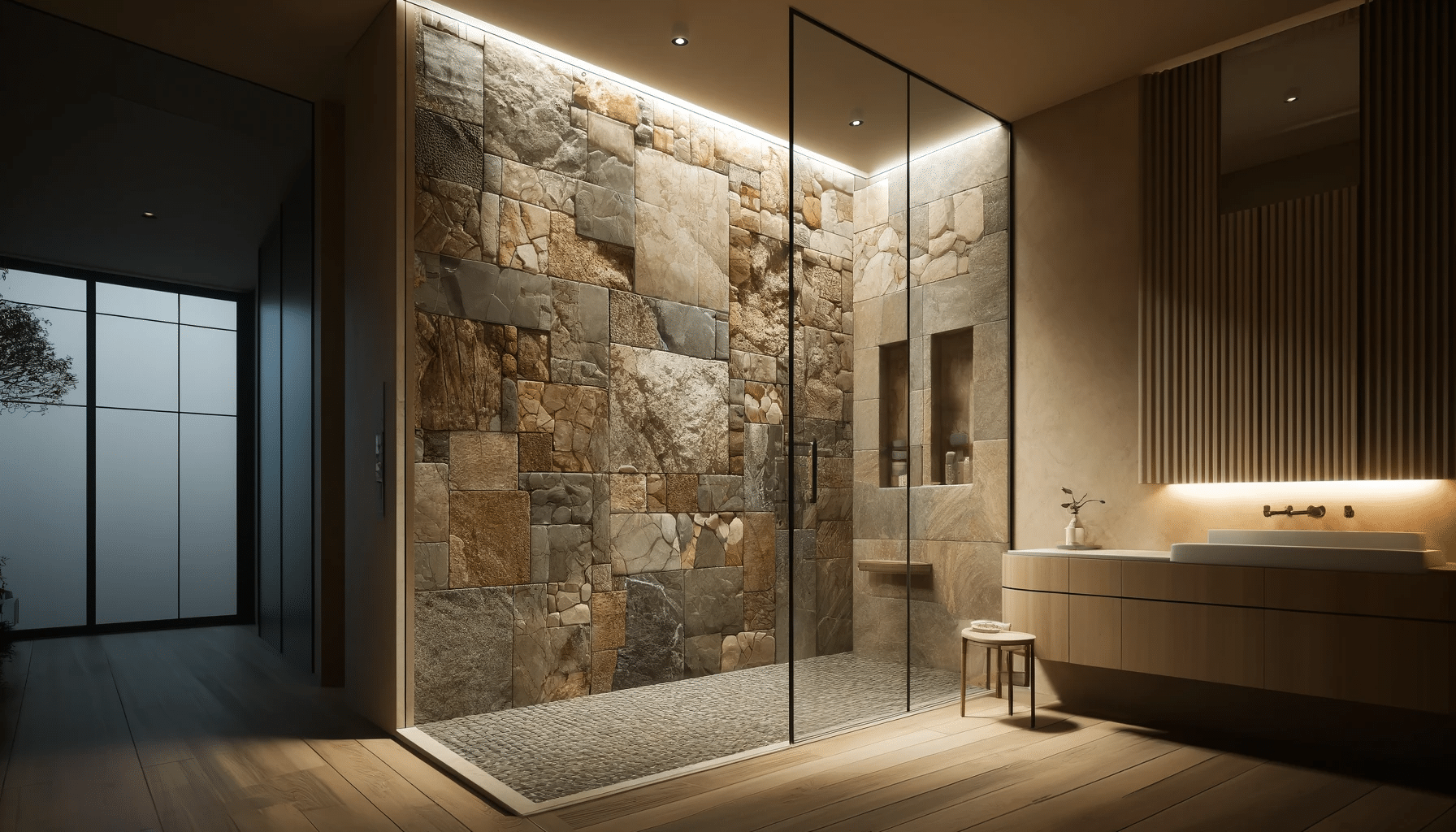
Acrylic and Fiberglass
Acrylic and fiberglass offer budget-friendly solutions with easy installation. These materials are available in various finishes and styles.
Pros: Low cost, minimal maintenance.
Cons: Less durable than tile or stone.
Best Uses: Great for quick and economical room updates.
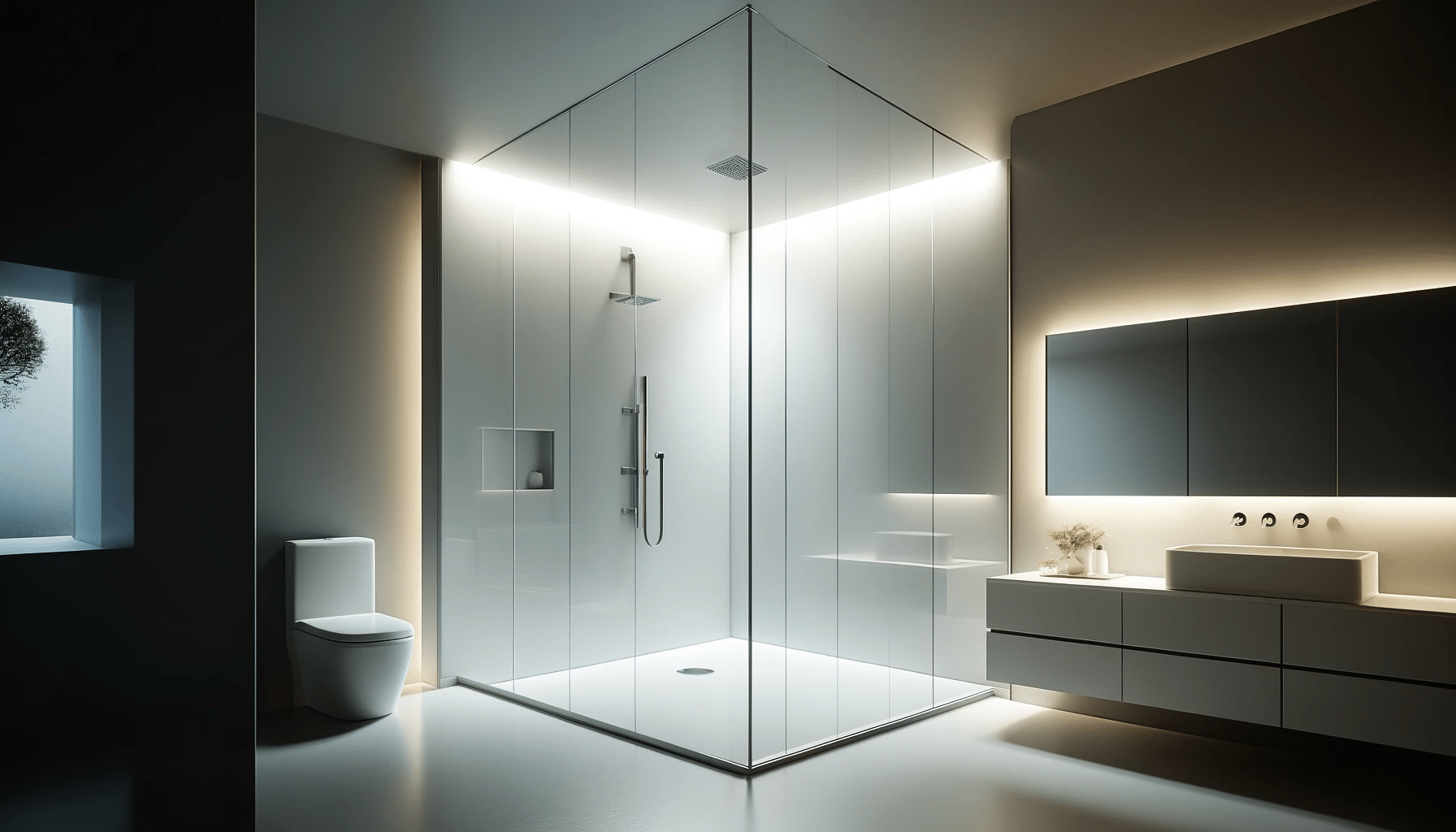
Glass Tiles
Glass tiles offer a modern look with their sleek design and reflective properties. They can make a small bathroom appear larger by reflecting light.
Pros: Available in numerous colors and transparencies.
Cons: More fragile and can be tricky to install.
Best Uses: Ideal for accent walls or small areas.
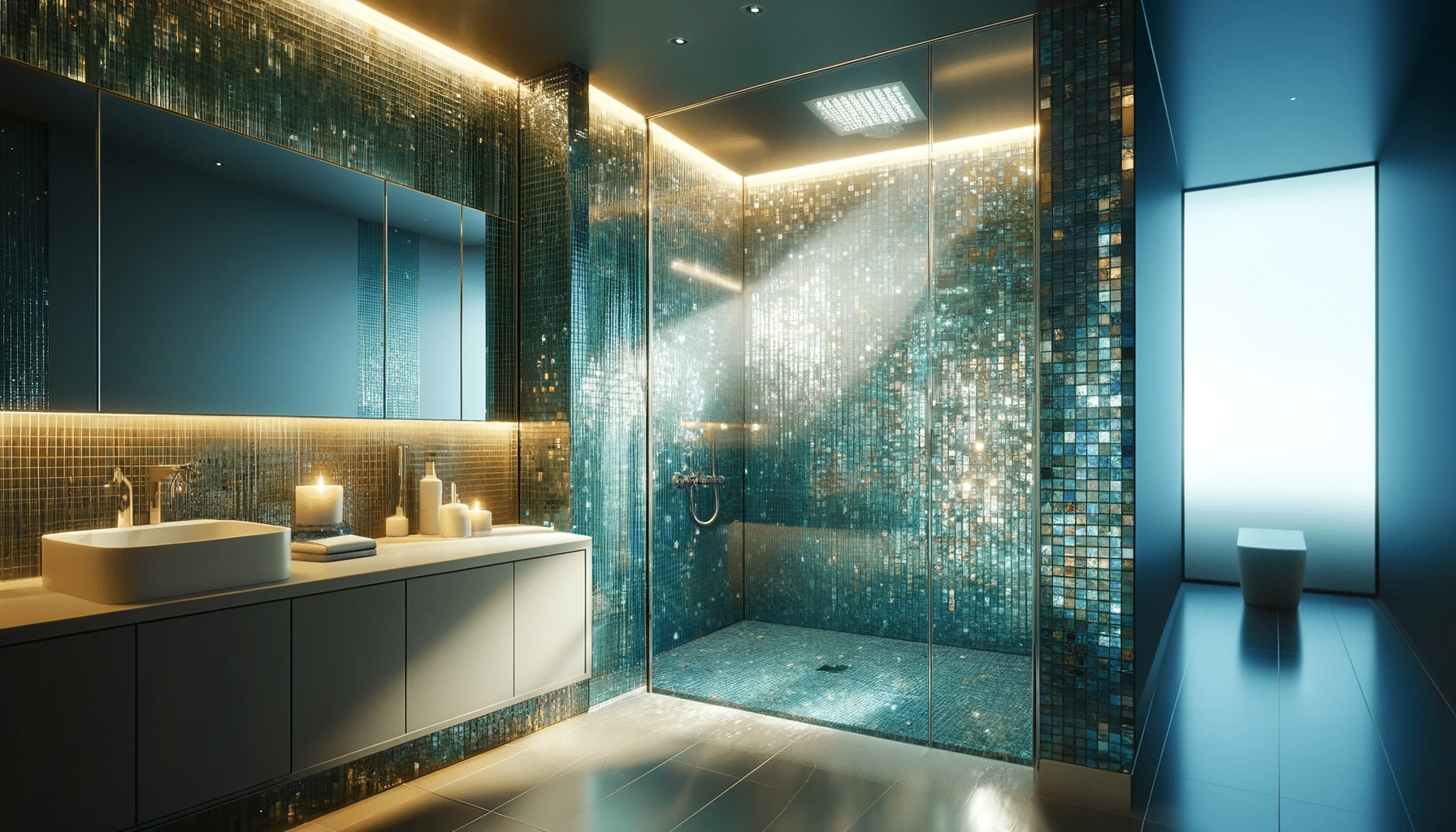
Solid Surface Materials
Corian and similar solid surface materials are known for their seamless finish and substantial feel. They can mimic the look of stone or tile without the associated maintenance.
Pros: Seamless design, extensive color and pattern choices.
Cons: It can be costly, depending on the brand and style.
Best Uses: Excellent for a clean, contemporary look that complements a minimalist decor.
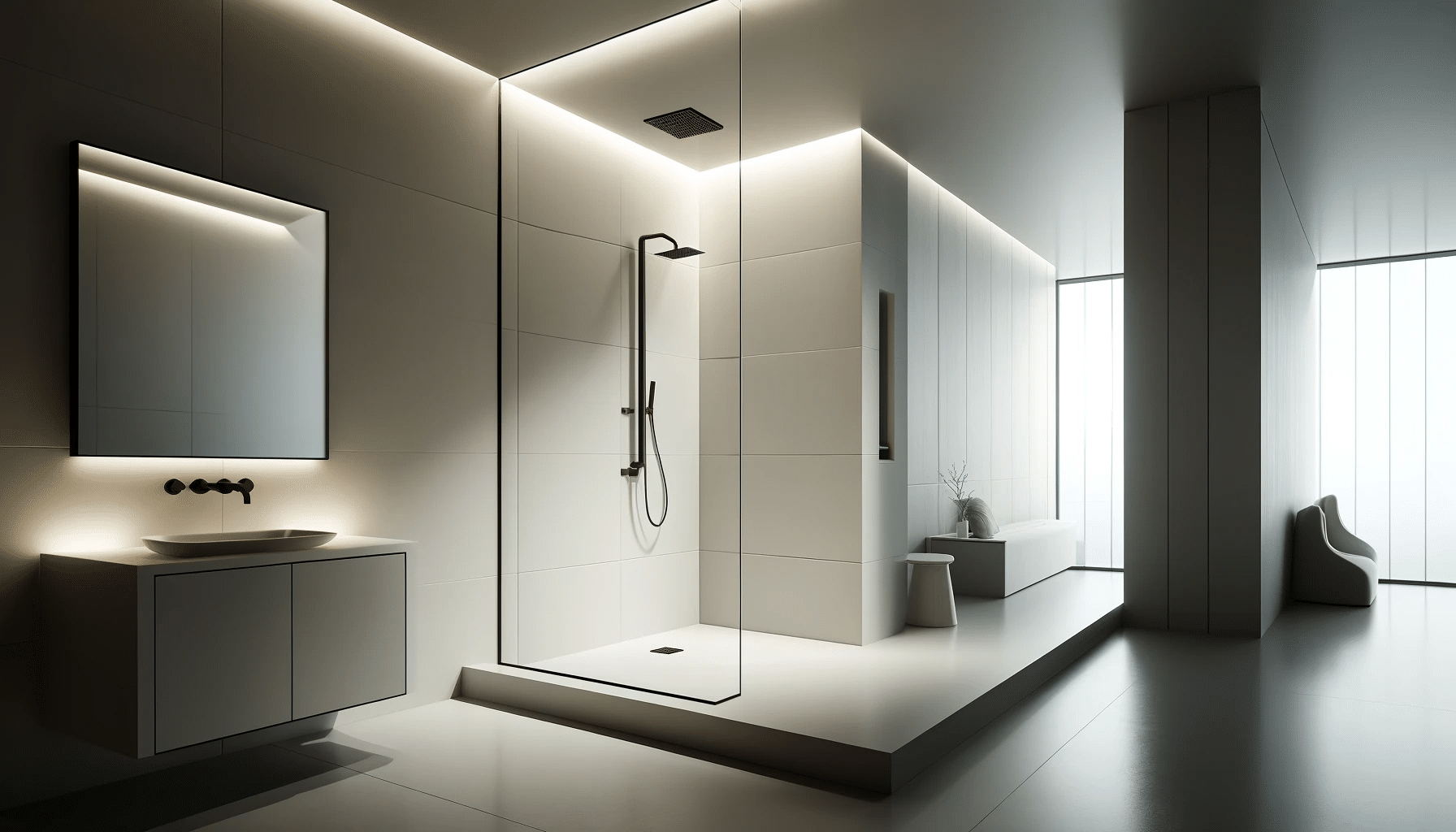
Innovative and Alternative Finishes
Laminated Wall Panels
Laminated wall panels are making waves in the market due to their ability to resist water and mimic textures like wood, tile, or stone without extensive installation or upkeep.
Advantages: Waterproof nature, ease of installation. Best Uses: Suitable for quick renovations and modern looks.
Concrete
With a rise in industrial design trends, concrete has become a favored choice for those seeking a minimalist and rugged aesthetic.
Pros: Durable and water-resistant when appropriately sealed.
Cons: Must be sealed correctly to prevent moisture absorption.
Best Uses: Ideal for an edgy, industrial-themed room.
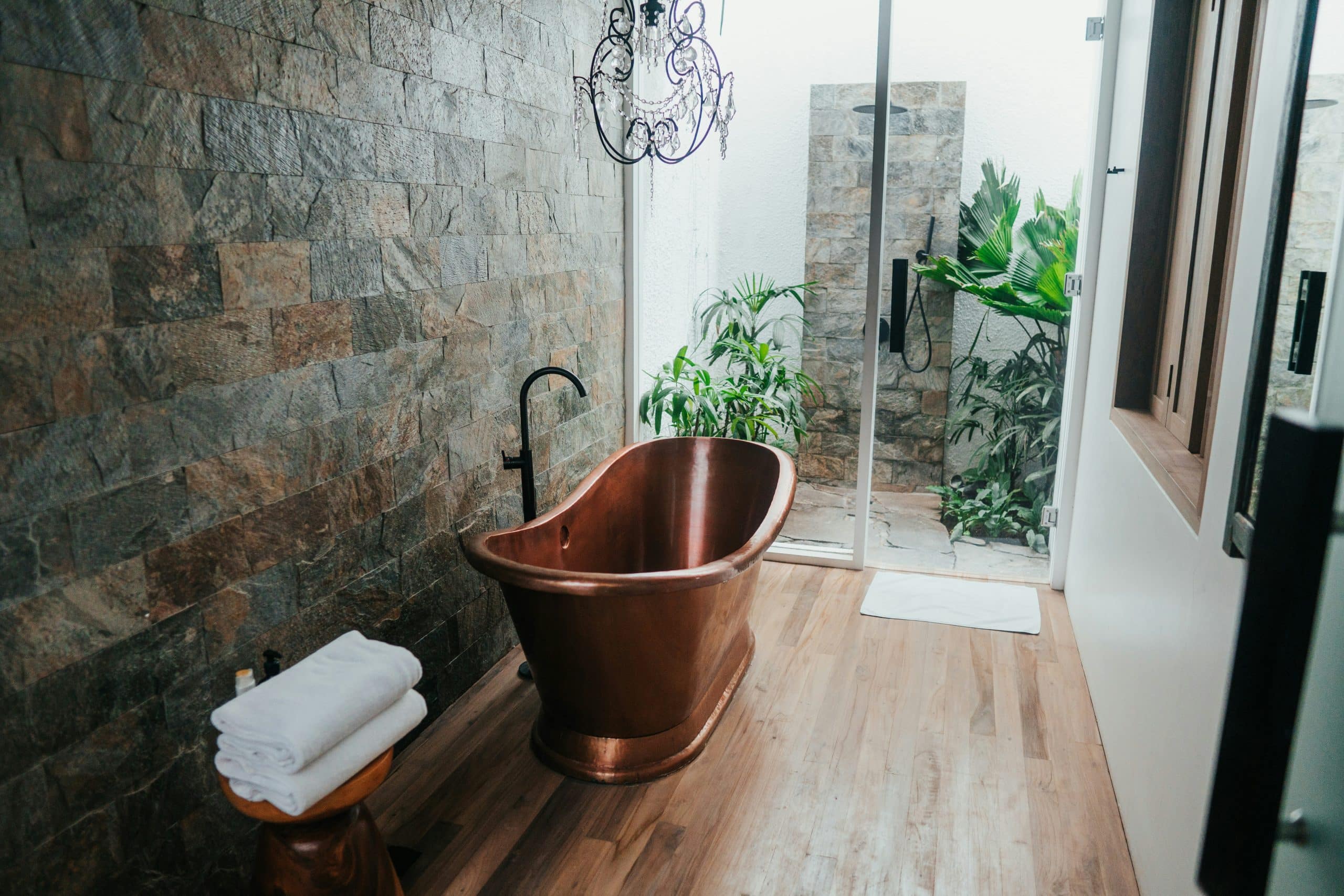
Choosing the Right Finish for Your Bathroom
Choosing the right shower wall finish for your bathroom remodel goes way beyond simply picking something that you like the look of. Some thought should be taken into choosing most finishes, other than just what you like the look of. Here are some things to consider:
Budget: The wall finish in a shower can be costly. For example, natural stones such as marble or granite are usually more expensive in terms of both material price and installation price than ceramic tiles or acrylic panels. A realistic budget should be set early in the design so one can research material alternatives and best balance cost and quality.
Bathroom Size and Layout: The size of your room can influence what type of wall finish may be most suitable for it. Large tiles or continuous panels will increase the size of small bathrooms and are easier to keep clean because they have less grout or joints. Smaller tiles may be the best choice for more detailed designs and curved walls.
Lighting: The number of your bathroom lights, both natural and artificial, will affect how a finish looks. Lighter colors or glossy finishes in a dark bathroom will do much to make it feel brighter and larger. On the flip side, if the room has a lot of natural light, you may choose darker or textured finishes that add depth and character without making the space feel too small.
Maintenance: Think of how much you’d like to maintain in your bathroom. In general, porcelain and glazed ceramic are pretty easy to keep clean and don’t stain as fast as natural stone does—though it requires resealing every so often. Acrylic and fiberglass are among the easiest to care for and could be great for busy households.
Compatibility with Other Bathroom Features: The finish on your shower wall should blend in with the other design features of your bathroom. Think about the textures, colors, and styles that complement the floors, fixtures, and cabinetry. For example, a modern glass tile may fight with a traditional brass fixture, whereas classic ceramic tiles could perfectly complement a vintage faucet and sink.
Durability and Longevity: Consider that the bathroom will be used over the long term. Some materials look beautiful but degrade quickly in a high-moisture atmosphere. Therefore, It is essential to go for materials that are attractive but tough enough to stand up to the conditions they are exposed to.
Material safety is critical, especially if a bathroom is designed for kids or elderly family members. Some finishes can become slippery when wet, and others may release volatile organic compounds (VOCs). Look out for slip-resistant finishes and low-VOC materials for safety and health purposes in your room.
Going through all these considerations, you can assure yourself that you have chosen a shower wall finish that looks good and holds up in daily life, adding function and flair to your room remodel.
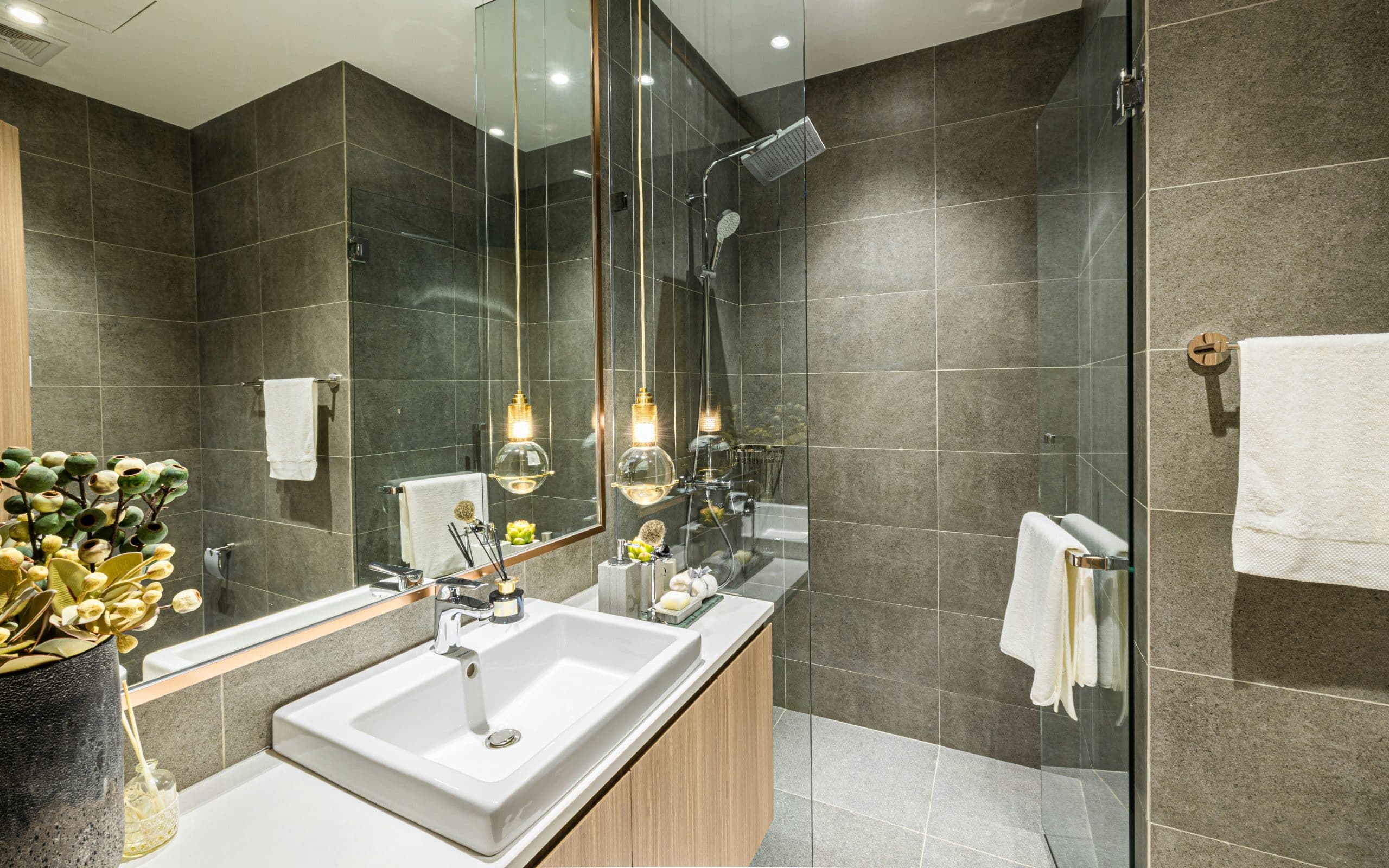
Installation and Maintenance Tips
The decision on whether to install the shower wall finishes yourself or to call in a professional should not be taken lightly. It must mainly be based on the complexity of the materials and your skill level. For instance, simple acrylic panels or adhesive-backed tiles can be within the reach of competent DIYers. At the same time, the materials—natural stone or large-format porcelain tiles—would require some special tools and skills for the installation to be done right. Check the complexity of the installation process, the required tools, and your experience in installation. Do not hesitate to consult with a professional if in doubt. This will save you time and possibly costly mistakes.
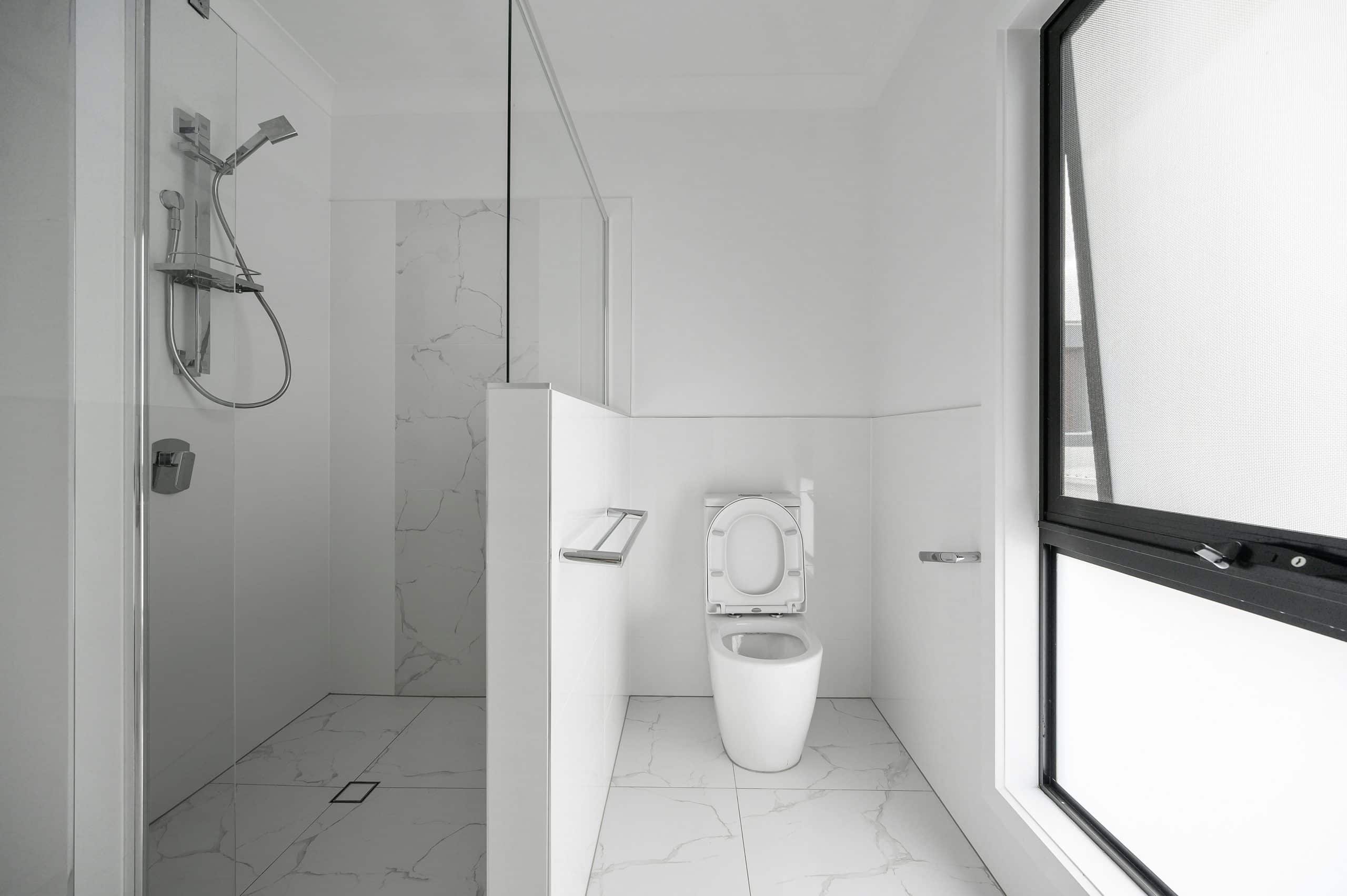
Let’s Make Your Dream Bathroom a Reality!
Are you doing a bathroom remodel or planning to? We want to hear about your projects and the issues you are battling. Whether you are here to get design ideas or need professional guidance on choosing finishes for your shower walls, we are here for you. Please share your experiences or ask your questions below, and let’s work together to turn your vision into reality. Do not hesitate to contact us for individual advice and professional support!










